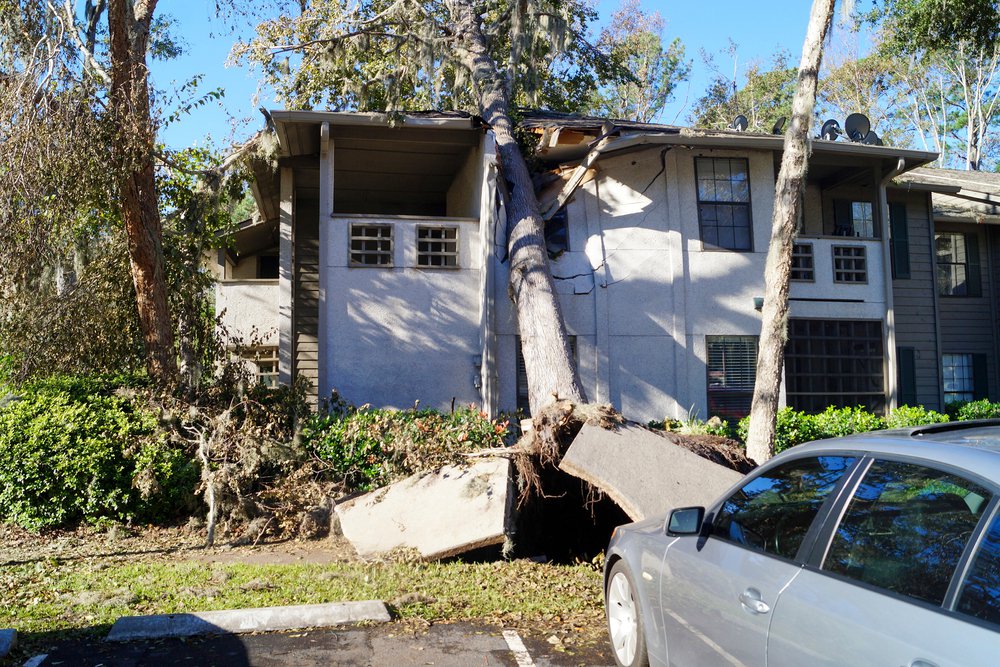When storm season rolls in, securing your building is only part of the equation. The other part—arguably more important—is making sure your property insurance is set up to work for you, not against you. Far too often, property owners and managers discover serious problems with their policies after a loss has already occurred. By then, insurance carriers may already be in full denial, delay, or underpayment mode—a behavior extensively documented by industry veterans.
Preparation isn’t just about bracing for wind and rain. It’s about positioning yourself to recover fully and fairly under your property insurance policy. From reviewing coverages to documenting your property condition, there are proactive steps that can make or break your claim outcome. Let’s walk through what you can do now—before the clouds roll in—to protect your property and your bottom line.
Review Your Property Insurance Policy (Before It’s Too Late)
The number one mistake property owners make is failing to understand their policy. Coverage documents are dense, full of exclusions, and often written in intentionally vague language. According to research, a significant number of policyholders experience delays and underpayments simply because they misunderstand what’s covered.
Before a storm hits, take a close look at:
- Your policy limits: Are they sufficient to replace everything at today’s costs?
- Named storm and windstorm deductibles: These are usually much higher than standard deductibles.
- Exclusions and endorsements: For example, most property insurance policies do not cover flood or storm surge damage, which is a critical distinction.
- Time limits on filing claims or submitting documentation.
Don’t try to navigate this alone. A public insurance adjuster can walk you through the policy and identify gaps that might impact your claim. We offer complimentary policy reviews precisely for this reason—because it’s easier to adjust now than after a storm strikes.

Build a Pre-Loss Documentation Package
No matter what your policy says, insurance companies rely on proof. Without clear, time-stamped evidence of your property's condition before a loss, claims become subject to scrutiny, delay, and often lowball settlement offers.
Start documenting your facility now by:
- Taking high-resolution photos and videos of every room, hallway, structural feature, and asset.
- Capturing close-ups of mechanical systems, equipment, and furnishings, including serial numbers and purchase dates where possible.
- Creating written inventories for high-value areas like server rooms, manufacturing lines, and commercial kitchens.
- Backing everything up digitally and securely—cloud-based platforms are ideal for instant access post-loss.
The APA and NAPIA, both consumer advocacy organizations for insured property owners, emphasize that strong documentation is one of the most effective tools in countering unfair claim practices. If you suffer a covered water loss (not from flood or outside storm water), these materials are essential to securing a fair settlement. As IICRC-certified specialists in Water Damage and Structural Drying, we know how critical these records are for validating post-loss damage.
Mitigate Losses by Securing the Property
Insurers expect policyholders to take “reasonable and necessary steps” to reduce the potential for damage before and after a storm. Failing to do so can open the door for claim denials or reductions under your property insurance policy.
Here are key steps to take in advance:
- Board up windows or install storm shutters.
- Reinforce rooftop equipment and exterior features like signage and lighting.
- Secure outdoor furniture, equipment, and temporary structures.
- Clear drains, gutters, and stormwater channels to prevent backups.
Additionally, maintain the area surrounding the structure. Trim overhanging trees and remove debris that could become windborne projectiles. Not only do these actions reduce actual damage, but they demonstrate to your insurer that you met your duty to mitigate loss.
Secure and Protect Essential Documents
Storm chaos often leads to disorganization, lost paperwork, and panic. But if you can’t access your policy documents, proof of ownership, or your inventory list, your recovery process could be delayed by weeks.
We recommend:
- Storing hard copies of your policy, lease, and vendor contracts in a waterproof, fireproof container.
- Backing up photos, videos, and important records on secure cloud platforms.
- Keeping a printed list of emergency contacts, including your public adjuster, in your disaster preparedness plan.
This level of preparation makes it easier to submit the required documents immediately after a storm. Having these records also allows your adjuster to begin the process of documenting post-loss conditions with speed and precision.
Understand the Claims Process—And Your Rights
Many property owners are unaware that their insurance company is not obligated to advocate for them. Quite the opposite—insurers are known to downplay or outright deny valid claims. Experts like David Skipton (Broken Promises) and Bill Wilson (When Words Collide) have written extensively about how carriers manipulate policy language and claims processes to their own advantage.

Here’s how to get ahead:
- Know what’s required of you post-loss: prompt reporting, documentation, mitigation.
- Keep a damage log with dates, photos, and incident notes.
- Save all communications with your insurance carrier, contractors, and vendors.
And, most importantly, remember that a public insurance adjuster represents you, not the insurance company. As licensed first-party property damage adjusters, we handle all negotiations, documentation, and communications on your behalf. Whether you’re dealing with smoke damage, fire loss, or water intrusion (excluding storm surge or floodwater), we can help. At Velocity Public Insurance Adjusters, our IICRC certification in fire and smoke damage restoration further reinforces our ability to advocate for full and fair compensation.
The Best Defense Is a Proactive Strategy
Don’t wait until after the storm to start thinking about your property insurance. The time to act is now. Whether you're a property manager for a school district, a contractor overseeing multiple commercial sites, or a facility manager responsible for complex infrastructure, your livelihood depends on how quickly and completely your property can bounce back.
Insurance carriers count on policyholders being unprepared. By educating yourself, documenting your assets, and working with experienced public adjusters, you’re flipping the script.
Get Ahead of the Storm—With Confidence
Being proactive is the only reliable strategy when it comes to storm readiness and property insurance claims. From documenting pre-loss conditions to identifying dangerous exclusions, every step you take before a storm pays off tenfold when filing a claim.
At Velocity Public Insurance Adjusters, we can help you navigate the fine print, organize your inventory, and prepare for a fair recovery. Don’t wait for the weather to turn. Schedule a call for a free claim and policy review today.
Claim Services We Provide
Velocity Public Insurance Adjusters handles a variety of claim types for both commercial and residential property losses: weather-related damage, theft and vandalism, fire and smoke damage.
Members of
Velocity Public Insurance Adjusters is a Certified Firm with the IICRC.
IICRC Certified Firms are known for their high level of technical experience and professionalism.
With the rapid increase in consumer calls due to the demand for mitigation and restoration projects,
Certified Firms are working in the field every day and have unmatched expertise in complex restoration projects.
Client testimonials
Don't take our word for it, see what our clients are saying about us.
Contact us
Schedule a free, no-obligation, claim and policy review. Every property claim is different, and we'd like the opportunity to provide you with an assessment of your unique situation.
- Indiana
- Kentucky
- Michigan
- Ohio
- Iowa
- Wisconsin
- South Carolina
Use of Information Purpose: We use your information to send mobile messages and respond to your inquiries as necessary. This may involve sharing your information with platform providers, phone companies, and other vendors who assist in message delivery.
Protection of Information: We do not sell, rent, loan, trade, lease, or otherwise transfer for profit any phone numbers or customer information collected through the SMS program to any third party.
Disclosure: We may disclose your information if required by law, regulation, or governmental request, to avoid liability, or to protect our rights or property.
Choices and Controls Consent: Consent to receive automated marketing text messages is not a condition of any service we provide.
Opt-Out: You can opt out of receiving further text messages via the Messaging Service by responding to any of our text messages with any of the following replies: STOP, END, CANCEL, UNSUBSCRIBE, or QUIT.
Your Responsibilities Accurate Information: Ensure that the information you provide is accurate, complete, and truthful. Do not use a false or misleading name or a name you are not authorized to use.
Consequences: If we believe the information provided is untrue, inaccurate, or incomplete, or if you have joined the program for ulterior motives, we may deny you access to the program.












